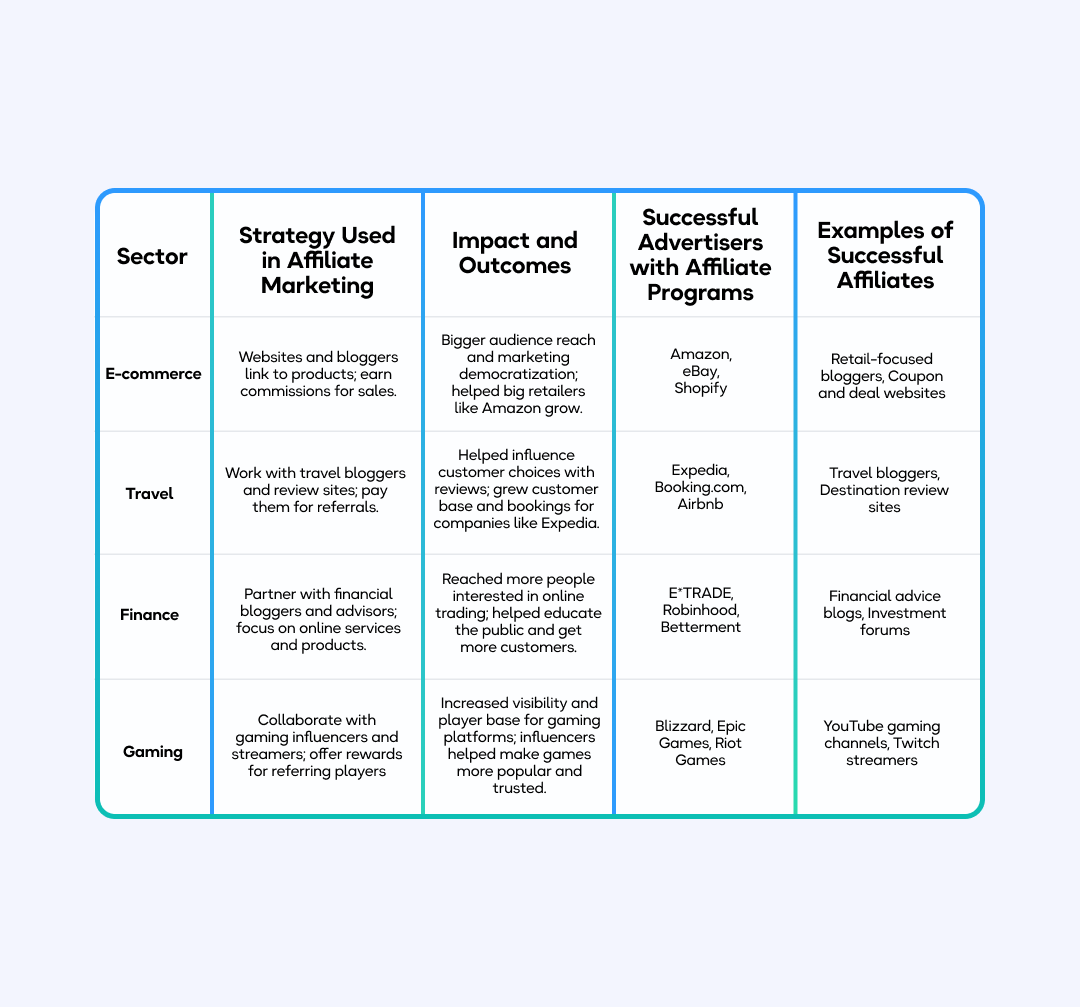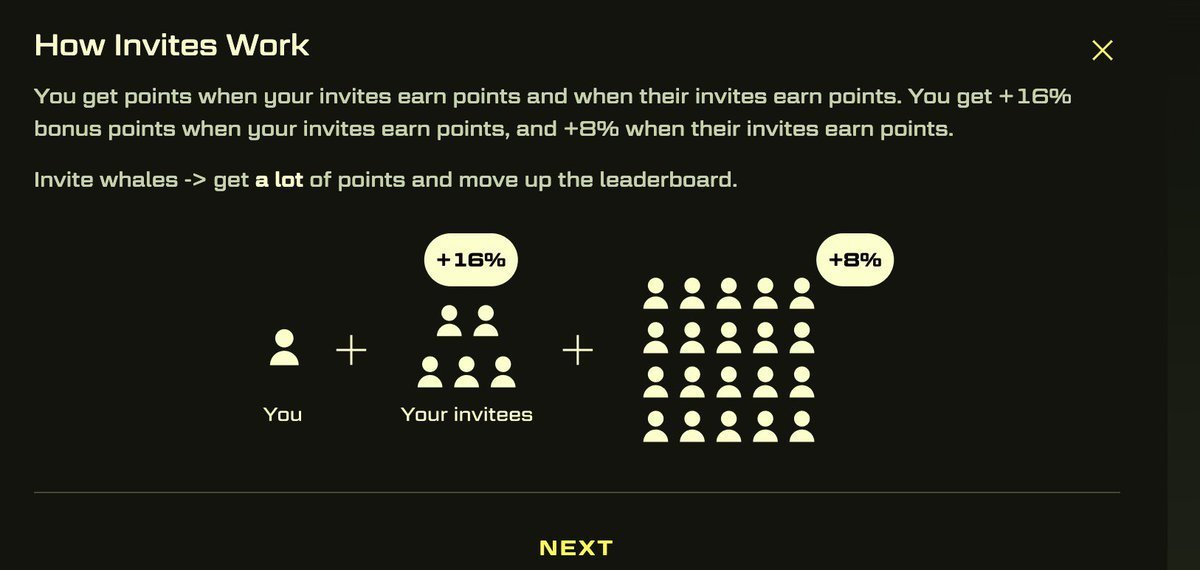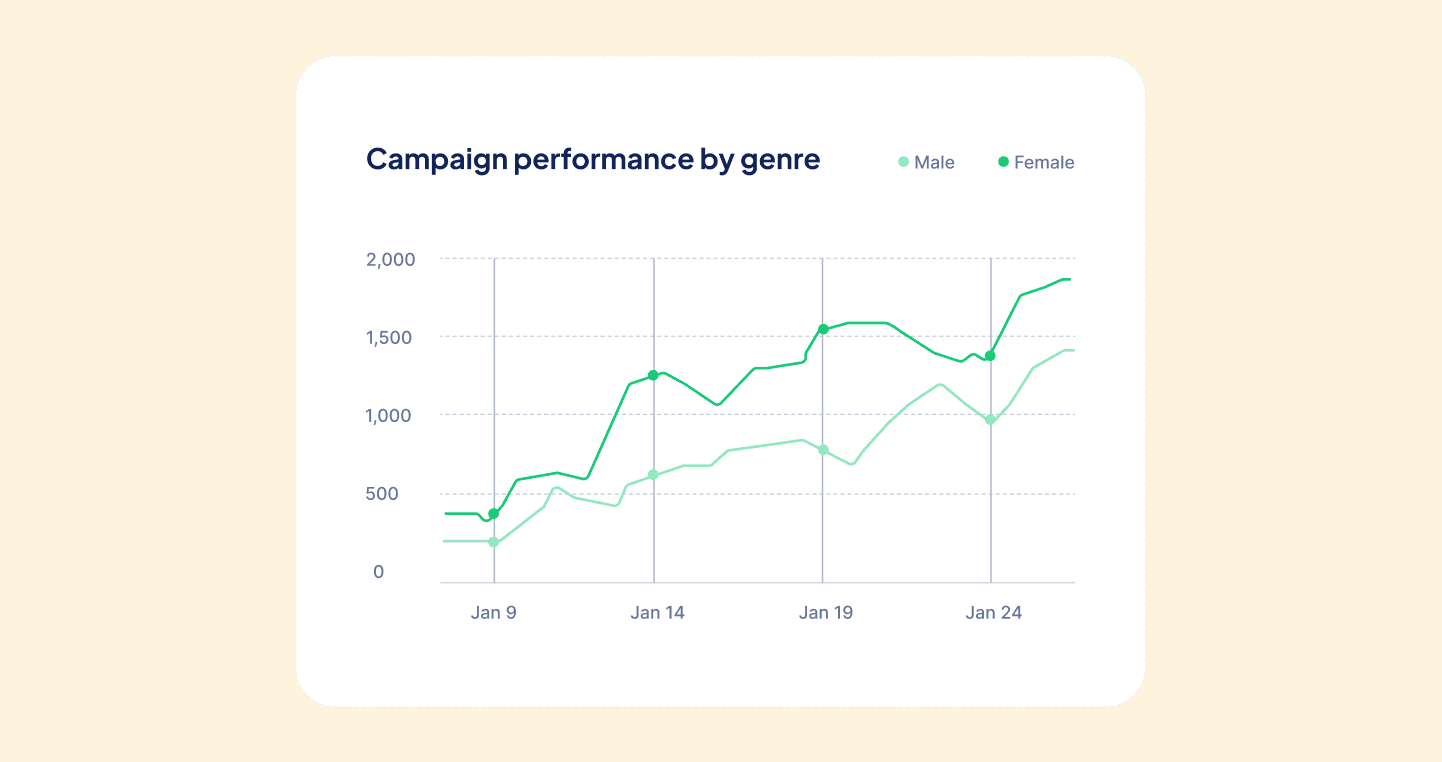The case for affiliate marketing in Crypto

Nowadays, about 81% of brands are using affiliate programs to reach more potential users, and 40% of U.S. companies see it as a main channel to get new customers. As ad costs rise on saturated networks, the trend towards affiliate marketing intensifies. Notably, Google searches for 'affiliate marketing' have quadrupled since 2020.
At the same time, crypto is becoming easier to use and more people are getting into it. In just two years, the number of people actively using blockchain has doubled, reaching over 15 million. This growth cannot only be credited to scaling technology on Ethereum (L2s), but should also be credited to new projects and verticals, which we think will keep expanding in 2024.
The intersection of affiliate marketing and the dynamic crypto space presents an unprecedented opportunity, and we are committed to continue developing on it. Let's dive into this article where we explain what affiliate marketing is, why it's important for crypto, and what we expect to see in the next year!
What is affiliate marketing and why should we care?
Affiliate marketing is a performance-based marketing strategy where businesses reward individuals or other businesses (affiliates) for each visitor or customer brought by the affiliate's own marketing efforts.
In affiliate marketing, things work differently compared to the usual way of buying ads. Usually, when marketers buy ads based on cost per click (CPC) or cost per thousand impressions (CPM), they spend money first, then look at how much they earned from their campaigns to figure out their return on investment (ROI) and optimize. With affiliate marketing, it's the other way around. Advertisers offer a commission for each user that an affiliate brings in who actually converts. This could be a set fee per action (CPA) or a share of the revenue. So, instead of paying upfront for ads, advertisers pay based on the actual results they get.
But maybe one of the most interesting traits about affiliate marketing is that it also serves as a great channel to educate users on new products or services - It's often through the trusted content of influencers, publishers or communities that we already know, that we discover our next thing.
Impact on Early Internet Businesses:
Historically, affiliate marketing has been instrumental in driving growth for various industries in the early web2 days: e-commerce, travel, financial services, gaming among others. It has also empowered a new generation of creators and website owners with a new monetization stream.
We strongly believe that affiliate marketing will help tremendously in educating and onboarding web2 users into web3 apps - just as it did for people to book travel online for their first time 20+ years ago.

Some 2023 themes we expect to continue seeing in 2024
Points everywhere
Point systems are a type of loyalty program used by projects to incentivize customer engagement - weâve seen users accumulate points through various actions such as making transactions, posting on social media, or referring other users. Whether projects are just using points to tease airdrops or not, we donât know, but we can definitely say that lots of products were able to build and sustain hype through their launches
MarginFi
Solana based protocol MarginFi was one of the first DeFi projects to come up with a point system in 2023. This point system is very simple, users earn points for borrowing, lending and referring others. As their X account puts it: âmore money = more points; more time = more pointsâ. Within two weeks of launch of the program, MarginFi 6x TVL to $18M.
Rainbow
In late 2023, Rainbow wallet rolled out a points program aiming to boost wallet usage and attract Metamassk users. Additionally, inviting new users to Rainbow is one of the best ways to earn points, with referrers receiving 10% of the points earned and to be earned by their referrals.
Invite-only launches
Launching a product through an invite-only mechanism leverages exclusivity and anticipation to create buzz. This past year we have seen both Friendtech and Blast do this very well.
Friendtech
Social app FriendTech launched with an invite-only mechanism: users needed a referral code to access the platform; each active user only received three referral codes to share per week. This automatically generated a lot of fomo and people started desperately looking for referral codes. Since its inception in August 2023, friendtech has reached close to 900,000 unique traders with a total of nearly 7 million transactions.
Blast
The L2 platform, Blast, kickstarted its user acquisition plan in November, preceding its scheduled launch in February 2024. Currently, access for new users is exclusively through invitations. Once onboarded, users can earn points by referring others to join:

This multi-level referral program generated a lot of controversy, and many did accuse Blast of being a Ponzi scheme. Opinions aside, this strategy enabled the L2 to gather over 1 billion in TVL and reach over 85,000 users, even before its official launch.
Early validation for affiliate marketing in crypto
Affiliate marketing is just getting started in the crypto world, but weâre starting to see some promising results. For example, centralized exchanges such as Coinbase and Binance have used affiliate marketing to grow their user base into the millions. Today it is almost impossible to see a CEX without an affiliate program.
In the DeFi vertical, protocols such as GMX and Lido have relied on affiliate marketing in smart ways to get more users and boost their trading and staking activities. For example, GMX saw a huge $33 billion in trading volume coming through affiliates since the launch of their affiliate program in April 2022. Lido's referral programs also did well, bringing in over 400,000 ETH staked in just the last six months of 2023.
Onwards to 2024
As we step into 2024, the outlook for affiliate marketing in the crypto space is promising. With new verticals emerging and innovative models being explored, affiliate marketing stands poised to be a key driver in web3 growth. The journey ahead is not without its challenges, but we are eager to be at the forefront of this exciting nexus of crypto and affiliate marketing.
Emphasize your product's unique features or benefits to differentiate it from competitors
In nec dictum adipiscing pharetra enim etiam scelerisque dolor purus ipsum egestas cursus vulputate arcu egestas ut eu sed mollis consectetur mattis pharetra curabitur et maecenas in mattis fames consectetur ipsum quis risus mauris aliquam ornare nisl purus at ipsum nulla accumsan consectetur vestibulum suspendisse aliquam condimentum scelerisque lacinia pellentesque vestibulum condimentum turpis ligula pharetra dictum sapien facilisis sapien at sagittis et cursus congue.
- Pharetra curabitur et maecenas in mattis fames consectetur ipsum quis risus.
- Justo urna nisi auctor consequat consectetur dolor lectus blandit.
- Eget egestas volutpat lacinia vestibulum vitae mattis hendrerit.
- Ornare elit odio tellus orci bibendum dictum id sem congue enim amet diam.
Incorporate statistics or specific numbers to highlight the effectiveness or popularity of your offering
Convallis pellentesque ullamcorper sapien sed tristique fermentum proin amet quam tincidunt feugiat vitae neque quisque odio ut pellentesque ac mauris eget lectus. Pretium arcu turpis lacus sapien sit at eu sapien duis magna nunc nibh nam non ut nibh ultrices ultrices elementum egestas enim nisl sed cursus pellentesque sit dignissim enim euismod sit et convallis sed pelis viverra quam at nisl sit pharetra enim nisl nec vestibulum posuere in volutpat sed blandit neque risus.

Use time-sensitive language to encourage immediate action, such as "Limited Time Offer
Feugiat vitae neque quisque odio ut pellentesque ac mauris eget lectus. Pretium arcu turpis lacus sapien sit at eu sapien duis magna nunc nibh nam non ut nibh ultrices ultrices elementum egestas enim nisl sed cursus pellentesque sit dignissim enim euismod sit et convallis sed pelis viverra quam at nisl sit pharetra enim nisl nec vestibulum posuere in volutpat sed blandit neque risus.
- Pharetra curabitur et maecenas in mattis fames consectetur ipsum quis risus.
- Justo urna nisi auctor consequat consectetur dolor lectus blandit.
- Eget egestas volutpat lacinia vestibulum vitae mattis hendrerit.
- Ornare elit odio tellus orci bibendum dictum id sem congue enim amet diam.
Address customer pain points directly by showing how your product solves their problems
Feugiat vitae neque quisque odio ut pellentesque ac mauris eget lectus. Pretium arcu turpis lacus sapien sit at eu sapien duis magna nunc nibh nam non ut nibh ultrices ultrices elementum egestas enim nisl sed cursus pellentesque sit dignissim enim euismod sit et convallis sed pelis viverra quam at nisl sit pharetra enim nisl nec vestibulum posuere in volutpat sed blandit neque risus.
Vel etiam vel amet aenean eget in habitasse nunc duis tellus sem turpis risus aliquam ac volutpat tellus eu faucibus ullamcorper.
Tailor titles to your ideal customer segment using phrases like "Designed for Busy Professionals
Sed pretium id nibh id sit felis vitae volutpat volutpat adipiscing at sodales neque lectus mi phasellus commodo at elit suspendisse ornare faucibus lectus purus viverra in nec aliquet commodo et sed sed nisi tempor mi pellentesque arcu viverra pretium duis enim vulputate dignissim etiam ultrices vitae neque urna proin nibh diam turpis augue lacus.

.png)
.png)